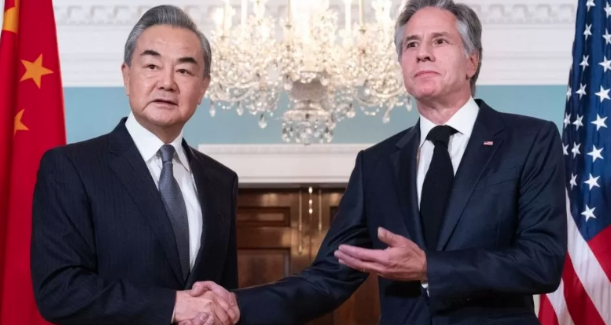China
China Navigates Israel-Hamas Conflict Diplomacy

In the historic lands of the Levant, where echoes of ancient rivalries persist, a new chapter unfolds in the Israel War narrative, this time with China entering the fray of diplomacy. As the world’s eyes turn to this age-old battleground, Beijing positions itself not with the might of arms but with an olive branch of dialogue, hoping to mediate between Israel and Hamas. This intervention by the Eastern giant is a delicate maneuver that the global audience watches with keen interest, raising questions about the underlying strategies at play in a land where peace remains as elusive as ever.
To comprehend the full scope of Beijing’s foray into the heart of Middle Eastern discord, one must voyage down the silk-threaded lanes of time. China, a behemoth reawakening, seeks a mantle worn long ago by emperors of old — that of mediator, a bringer of harmony. In the grand game of geopolitics, history is not just a guide but a gambit.
It’s not lost on the scholars of strategy that China’s bid to quell the flames comes as the United States, its rival in the great global ballet of power, falters in the eyes of many. The U.S. dances with Israel, a tango of military might and mutual interests, while China waltzes with the Palestinians, Iranians, Arabs, and Turks, in a diplomatic ballet that whispers of a multipolar world order.
The streets of Gaza, a mosaic of pain and perseverance, murmur with stories of the past and fears of the future. Here, where the rubble speaks as loudly as the living, the introduction of a new arbiter brings a cautious whisper of hope. The words of Wang Yi, China’s seasoned diplomat, echo through the halls of power, yet they are but faint notes against the cacophony of suffering on these ancient lands.
As drones hum above and children’s cries pierce the night, the everyday Gazan contends with the reality of survival under the shadow of a war that the world often seems content to observe from afar. They are the human heart of this story, each beat a testament to the enduring spirit against overwhelming odds.
Through the lens of critical analysis, China’s move appears as a chess piece slid with deft fingers across a board that spans continents. Its rhetoric, rich with the language of peace, belies the weight of an agenda crafted in the halls of Beijing’s storied Forbidden City. The Middle Kingdom positions itself not just as a negotiator but as the herald of a new epoch, where Eastern wisdom might succeed where Western efforts have waned.
Yet, this dance is not without missteps. The shadow of China’s own dealings — its iron grip on Uighur Muslims, its Himalayan standoff with India, its dragon’s breath on Hong Kong — casts long, dark silhouettes that could well cloud the sincerity of its intentions.
The narrative is as intricate as a Chinese scroll painting, replete with paradoxes. On the one hand, there is the peaceful rhetoric of President Xi Jinping and his envoys; on the other, the stinging critique of Western imperialism’s vestiges. The Middle East, with its oil-drenched sands and its Babel of ideologies, is a canvas upon which China seeks to paint its legacy — an epic in the making, where every brushstroke is fraught with consequence.
The air in Jerusalem is thick with tension, a storied city where the footsteps of prophets now tread beside the boots of soldiers. The bazaars brim with whispered rumors of the new player from the East, an interloper in a game that has seen empires rise and fall. In the shade of olive trees, men speak of war and peace, of drones and tanks, of a world that watches through screens and satellites, while they live the reality on the ground.
As the curtain falls on this latest act in the Middle East’s enduring drama, one is left to ponder the path ahead. Will China’s delicate dance amidst the olive groves and the falling rockets lead to a hallowed peace, or is it but a prelude to another act in a tragedy written long ago? The answer lies in the winds of fortune and the sands of time, where the past is prologue and the future, a mystery yet unwritten.
In the end, the true measure of China’s role in the Israel-Hamas conflict will not be taken in the opulent halls of power nor in the silence of ceasefire agreements. It will be
found in the streets of Gaza and Jerusalem, in the hopes of the people, and in the legacy of the land — a land too long acquainted with the echoes of war.












You must be logged in to post a comment Login